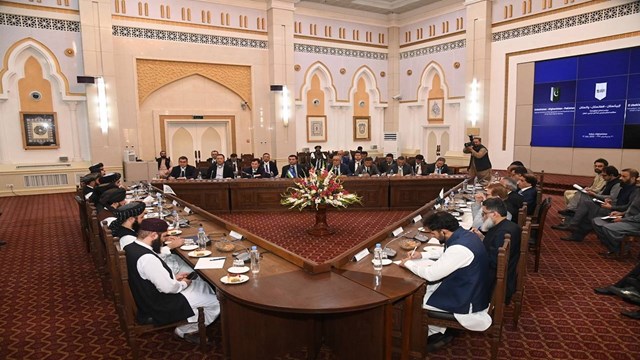
Uzbekistan Hopes for Faster Access to the Sea with the Launch of the Trans-Afghan Railway
Uzbekistan Hopes for Faster Access to the Sea with the Launch of the Trans-Afghan Railway
Uzbekistan aims to significantly increase freight transport along the Trans-Afghan Railway route, while reducing transportation costs and delivery times, by securing the shortest possible access to the sea once the project becomes operational.
As one of only two countries in the world—alongside Liechtenstein—whose neighbors also lack a coastline, Uzbekistan continues its efforts to reach global markets via the shortest routes, minimize transportation costs, and diversify its transport networks.
With this goal, the Uzbek government has accelerated initiatives to reach seaports through neighboring Afghanistan and Pakistan. In February 2021, in Tashkent, the governments of Uzbekistan, Afghanistan, and Pakistan signed a roadmap for the construction of the Termez–Mazar-i-Sharif–Kabul–Peshawar railway.
Although construction was initially planned to start in September 2021, political changes in Afghanistan—specifically, the Taliban’s takeover—caused a slowdown in the project. However, after Uzbekistan’s diplomatic efforts, the Taliban government expressed its willingness to participate in December 2021, reviving work on the Trans-Afghan Railway.
In July 2022, exploratory work began to determine the route and conduct a feasibility study. In July 2023, at a high-level trilateral meeting in Islamabad, the three countries agreed on the final route: Termez – Naybabad – Maidan Shahr – Logar – Kharlachi. That same year, Uzbek company Boshtransloyiha, together with an international consultancy, completed the initial feasibility study, estimating the total project cost at $4.6 billion.
On July 17 in Kabul, the foreign ministers of Uzbekistan, Afghanistan, and Pakistan—alongside their respective transport ministers—held a trilateral meeting where, for the first time, concrete steps were taken toward the project’s realization. They signed an agreement to complete feasibility studies for the railway, which will run through all three countries.
Project Expected to Triple Transport Volume, Cut Costs and Delivery Times
According to Uzbek authorities, construction is planned to begin this year, with completion targeted within five years. The railway will span approximately 573 kilometers, including 33 stations, 187 kilometers of station tracks, three tunnels, 107 railway crossings, 1,212 structures, and over 700 kilometers of power lines.
The line will start in Termez, near the Afghan border, pass through Naybabad, Maidan Shahr, and Logar in Afghanistan, and connect to ports in Pakistan. Once operational, Uzbekistan expects to reduce its shipping time to the sea via Pakistan from 30 days to just 5 days.
Currently, Uzbekistan transports nearly 1 million tons of goods annually through Pakistan. With the Trans-Afghan Railway, freight capacity on this route is expected to at least triple in the first phase, while transportation costs could be halved and delivery times cut sixfold. Initially, the line is projected to carry 3 million tons of cargo per year, eventually reaching 20 million tons annually.
“The Trans-Afghan Railway Offers Great Potential”
Logistics expert Alisher Davirov noted that Uzbekistan and Liechtenstein are the only two countries in the world whose neighbors also have no coastline, making direct access to the sea of strategic importance. He pointed out that while Uzbekistan currently has access to ports in Iran and Turkey via Turkmenistan, and to Baltic ports via Kazakhstan and Russia, recent global events have revealed the vulnerability of supply chains, prompting Uzbekistan to seek more secure and shorter routes.
According to Davirov, access to Pakistani ports via Afghanistan will minimize transport time to the sea, enabling significant savings in both time and cost. He added that the railway’s operation will open Uzbekistan further to world markets and boost the country’s foreign trade volume.
Davirov also highlighted that once the under-construction China–Kyrgyzstan–Uzbekistan railway is connected to the Uzbekistan–Afghanistan–Pakistan line, it will form a major transport corridor linking different parts of Asia. “In this regard, the Trans-Afghan Railway offers great prospects,” he said.
He concluded that the Uzbekistan–Afghanistan–Pakistan Corridor, also known as the Trans-Afghan Railway, will be a key link between Central and South Asia. “Its operation will not only enhance trade and economic cooperation among the region’s countries, but also contribute to the further development of political and diplomatic relations between them,” he emphasized.